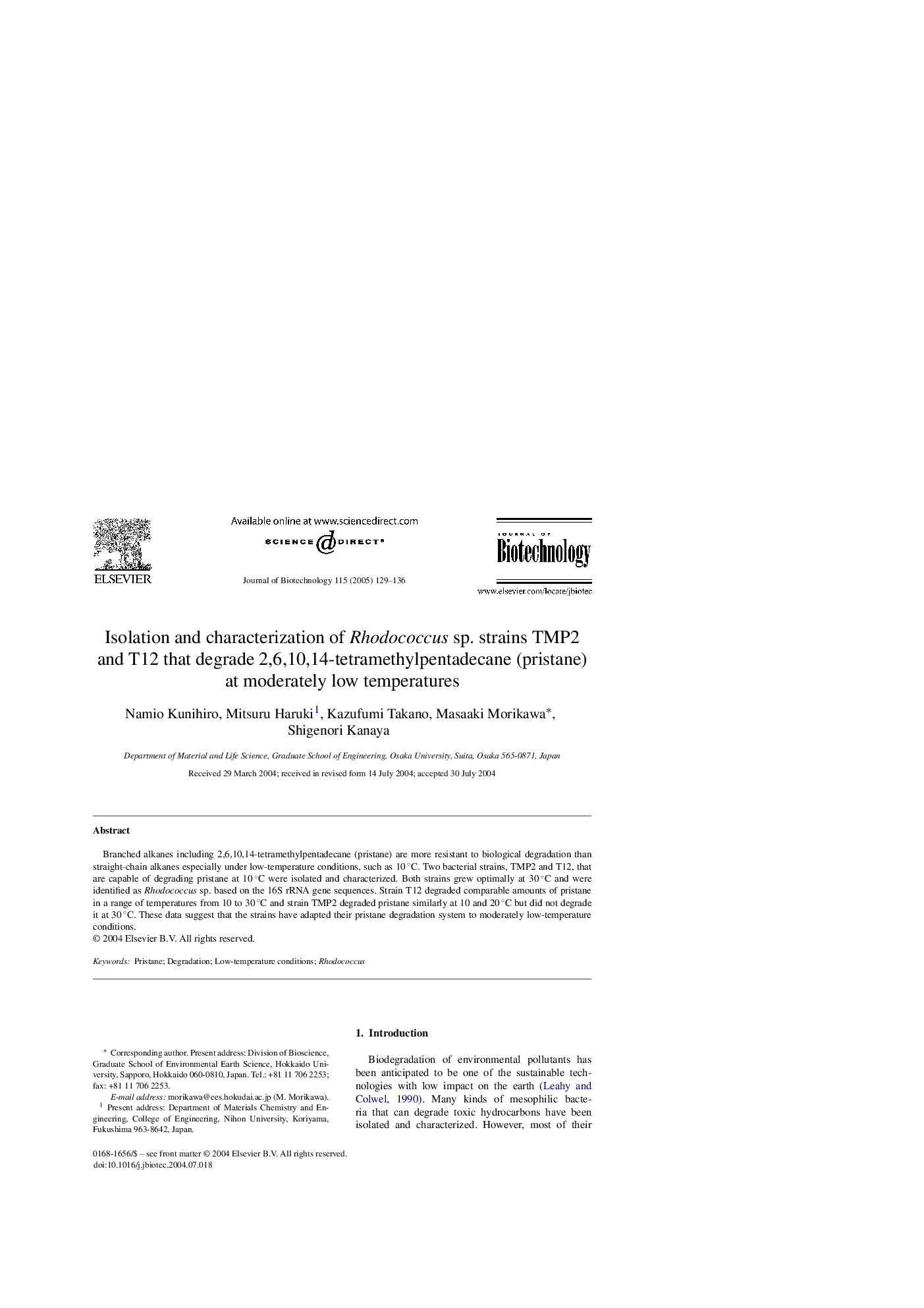| Article ID | Journal | Published Year | Pages | File Type |
|---|---|---|---|---|
| 9604487 | Journal of Biotechnology | 2005 | 8 Pages |
Abstract
Branched alkanes including 2,6,10,14-tetramethylpentadecane (pristane) are more resistant to biological degradation than straight-chain alkanes especially under low-temperature conditions, such as 10 °C. Two bacterial strains, TMP2 and T12, that are capable of degrading pristane at 10 °C were isolated and characterized. Both strains grew optimally at 30 °C and were identified as Rhodococcus sp. based on the 16S rRNA gene sequences. Strain T12 degraded comparable amounts of pristane in a range of temperatures from 10 to 30 °C and strain TMP2 degraded pristane similarly at 10 and 20 °C but did not degrade it at 30 °C. These data suggest that the strains have adapted their pristane degradation system to moderately low-temperature conditions.
Keywords
Related Topics
Physical Sciences and Engineering
Chemical Engineering
Bioengineering
Authors
Namio Kunihiro, Mitsuru Haruki, Kazufumi Takano, Masaaki Morikawa, Shigenori Kanaya,
